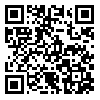Volume 75, Issue 4 (July 2017)
Tehran Univ Med J 2017, 75(4): 288-298 |
Back to browse issues page
Download citation:
BibTeX | RIS | EndNote | Medlars | ProCite | Reference Manager | RefWorks
Send citation to:



BibTeX | RIS | EndNote | Medlars | ProCite | Reference Manager | RefWorks
Send citation to:
Mohammad Mosadeghrad A, Akbari Sari A, Yousefinezhadi T. Evaluation of hospital accreditation method. Tehran Univ Med J 2017; 75 (4) :288-298
URL: http://tumj.tums.ac.ir/article-1-8149-en.html
URL: http://tumj.tums.ac.ir/article-1-8149-en.html
1- Department of Health Management and Economics, School of Public Health, Tehran University of Medical Sciences, Tehran, Iran.
2- Department of Health Management and Economics, School of Public Health, Tehran University of Medical Sciences, Tehran, Iran. ,t.yousefinezhadi@gmail.com
2- Department of Health Management and Economics, School of Public Health, Tehran University of Medical Sciences, Tehran, Iran. ,
Abstract: (11567 Views)
Background: Hospital accreditation is a systematic external evaluation of a hospital’s structures, processes and results (outputs/ outcome) by an independent professional accreditation body using pre-established optimum standards. Hospital accreditation has an important role in improving the quality, safety, effectiveness and efficacy of health care services. The effectiveness of an accreditation system depends on the quality and conformity of its methods, standards and surveyors. This study aimed to evaluate the hospital accreditation method from the perspective of Iranian hospital managers.
Methods: This descriptive, applied and cross-sectional study was carried out in 2015 using a valid and reliable questionnaire. The study population consisted of 914 hospital managers. Overall 547 hospital managers were surveyed through stratified random sampling. SPSS software was used for data analysis.
Methods: This descriptive, applied and cross-sectional study was carried out in 2015 using a valid and reliable questionnaire. The study population consisted of 914 hospital managers. Overall 547 hospital managers were surveyed through stratified random sampling. SPSS software was used for data analysis.
| Results: Almost 71.7 percent of hospitals achieved grade one and above in the first round of national accreditation survey. The mean score of managers’ satisfaction of hospital accreditation method was 3.21±0.63 out of 5 (Average). About 38 percent of hospital managers were satisfied with the hospital accreditation method. Most complaints were related to lack of reliability among surveyors and their low knowledge, skills and experience. Hospital managers were satisfied with surveyors’ attitude and adequacy of the number of survey days. Hospital managers mostly believed that accreditation is better to be done by Ministry of Health, compulsory, and every two years. About 95 percent of hospital managers agreed that self-assessment is necessary and beneficial prior to the accreditation survey. Conclusion: Hospital managers were moderately satisfied with the national accreditation system. Developing job description and person specification for accreditation surveyors and recruiting them accordingly, and providing professional education and training for them help improve the effectiveness of Iranian hospital accreditation method. The method of hospital accreditation in Iran has to be changed. Self-assessment, unannounced surveys, review of hospital key performance indicators and patient satisfaction surveys should be added to the current scheduled on-site surveys to enhance the credibility of the accreditation result. |
Type of Study: Original Article |
Send email to the article author
| Rights and permissions | |
 |
This work is licensed under a Creative Commons Attribution-NonCommercial 4.0 International License. |





